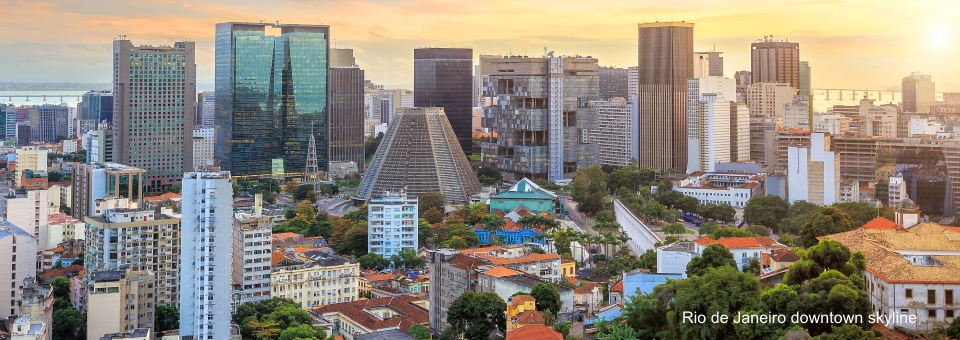
The newly updated Doing Business in Brazil Guide looks at South America’s largest economy and the world’s 9th largest by GDP, according to the IMF and World Bank. As one of the so-called BRIC markets, Brazil’s growth in the last two decades has been significant, despite a deep recession in the last few years. Indeed, by way of comparison, São Paulo state’s economy alone is larger than Argentina’s. Neighbouring Argentina, Bolivia, Colombia, French Guiana, Guyana, Paraguay, Peru, Suriname, Uruguay, and Venezuela, and as a member of the Common Market of the South (Mercosur), Brazil undoubtedly acts as a hub for the region.
Here in the UK there is a renewed enthusiasm about Brazil as a market. With the economy now coming out of its recent recession many industries are beginning to grow significantly. Automobile sales, for example, are expected to hit 2.9 million units in 2019, up from 2.05 million in 2016. Due to its size as a market, 400 of the world’s 500 largest companies operate in Brazil, including Rolls Royce, BP and Shell from the UK.
As with any market there are challenges and Brazil is ranked at 105th in Transparency International’s Corruption Perceptions Index as of 2018. This, along with a cumbersome tax and regulatory system, leaves the country ranking at 109th in the World Bank’s ‘Ease of Doing Business’ rankings. This makes the importance of doing your due diligence and forming reliable relationships with distributors paramount.
Communication is vital, and you need to go out to the market to meet your Brazilian partners as many complain that UK businesses don’t do this enough. Also, appreciate that there are cultural differences to factor in regarding business etiquette, including less of an emphasis on punctuality and a greater tactility when it comes to meeting and greeting. Although Brazil is the largest market in South America, it is also distinct from many of its neighbours. For one, Portuguese is the main language spoken there, so having a Portuguese-speaking member of staff or a translator may be helpful. It’s also a massive country, with many cities located long distances from each other and much of the distance between them is taken up by Amazonian rainforests.
As ever, if you need any support getting to grips with the Brazilian market, feel free to get in touch with the Institute of Export & International Trade.
View the new Doing Business in Brazil Guide here



